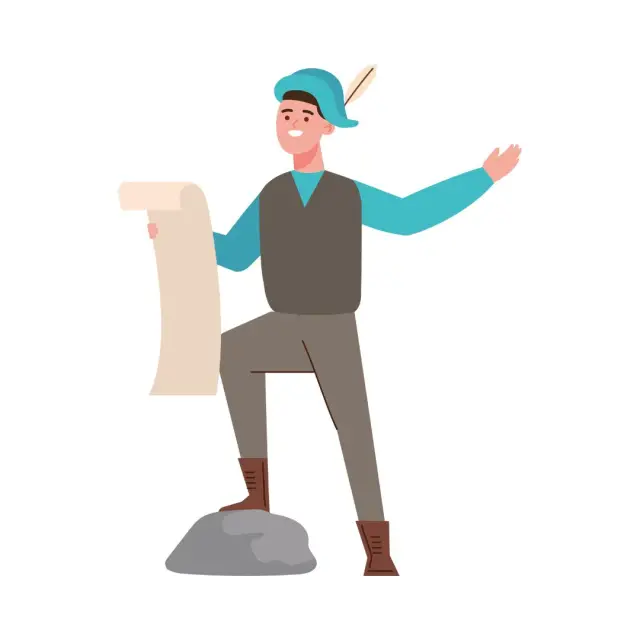World Poetry Day, celebrated every year on March 21, is an occasion dedicated to honoring and reflecting on the power of the written word. Since its proclamation by UNESCO in 1999, this date seeks to highlight the cultural, linguistic and social importance of poetry in the world. Poetry, as an art form, has for centuries been a means of expressing emotions, telling stories and connecting people across languages and cultures.
Origins of World Poetry Day
UNESCO established World Poetry Day with the aim of supporting linguistic diversity and encouraging the preservation of endangered languages through poetic expression. It also aims to foster cultural exchange, promote the reading and writing of poetry and underline its capacity to address universal issues such as justice, peace and equality.
The choice of March 21 is no coincidence; it coincides with the spring equinox in the northern hemisphere, a time of renewal and hope that symbolizes the essence of poetry: a celebration of life and creativity.
Poetry through time
Poetry is one of the oldest forms of human expression. From ancient epic poems such as Homer's "Iliad" and "Odyssey" to Japanese haikus and verses of the Middle Ages, poetry has served as a testament to humanity's aspirations, fears and hopes.
In Latin American literature, figures such as Pablo Neruda, Gabriela Mistral and Octavio Paz have left a profound legacy, exploring themes such as love, nature and cultural identity. In other parts of the world, poets such as William Shakespeare, Emily Dickinson and Rumi have influenced generations of writers and readers, leaving a lasting impact on humanity.
The role of poetry in society
Poetry has the power to influence society by challenging norms, questioning power structures and offering new perspectives. During social and political movements, poets have raised their voices to fight injustice and oppression. For example, poems from the Harlem Renaissance in the United States gave voice to the African-American experience, while resistance poetry in Latin America denounced dictatorships and human rights violations.
Poetry also plays a vital role in education, helping students develop language skills, foster critical thinking, and explore their own creativity. Through their rhythms, images, and sounds, poems can convey profound messages in a concise and powerful way.
Celebrations around the world
Each country celebrates World Poetry Day in its own unique way, incorporating local and cultural traditions. In some cities, open-air poetry readings, literary workshops and school competitions are organized. In other places, libraries and cultural centers present special exhibitions and activities dedicated to poetry.
For example, in Chile, the legacy of poets such as Pablo Neruda and Gabriela Mistral inspires literary recitals and events. In France, the “Printemps des Poètes” (Spring of Poets) is a national festival that attracts thousands of participants each year. Meanwhile, in India, poets use the day to pay tribute to the country’s rich literary tradition, from Sanskrit to modern languages.
Poetry in the digital age
Today, poetry has found new forms of expression in the digital age. Social media platforms such as Instagram and Twitter have become popular platforms for so-called “instapoets,” who share short, visually appealing poems with global audiences. This democratization of poetry has allowed emerging voices to reach readers around the world, overcoming geographical and cultural barriers.
In addition, podcasts, blogs and online videos have expanded the possibilities for poets, making it easier to disseminate their work. However, it also raises questions about the quality and depth of poetry in a world driven by rapid content consumption.
How to participate in World Poetry Day
There are many ways to participate in this global celebration. Some ideas include:
Read a poem: Take time to explore the work of a poet you don't know.
Write your own verses: Poetry has no strict rules, so let your creativity flow.
Attend an event: Look for poetry readings or workshops in your community.
Share online: Post a poem that inspires you on your social networks.
Promote poetry in the classroom: If you are a teacher, organize poetry-related activities for your students.
World Poetry Day celebrates not just an art form, but its ability to unite us as humanity. In a world where divisions often prevail, poetry reminds us of our interconnectedness and our shared need for beauty, truth and expression.
Whether you consider yourself a poet, a casual reader, or someone who simply appreciates the written word, this day is an opportunity to reflect on the impact poetry has had on your life and the world around you. Poetry is alive, constantly evolving and ready to inspire new generations.
So this March 21, take a moment to immerse yourself in the world of poetry. You might discover a new way of looking at life, or even find your own voice.
